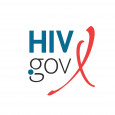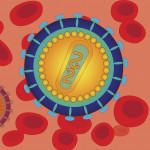During the first full day of sessions at the International AIDS Society’s 12th Conference on HIV Science (IAS 2023), HIV.gov shared conversations on important study findings about reducing cardiovascular disease among people with HIV and the latest developments with long-acting prevention and treatment options that could one day become safe and effective alternatives to daily oral pills.
NIH’s Carl Dieffenbach discussed findings presented today about the NIH-supported Randomized Trial to Prevent Vascular Events in HIV (REPRIEVE) trial, a global study that demonstrated a daily statin medication reduces the increased risk of cardiovascular disease experienced by people living with HIV. (Learn more in this NIH news release published today.) Dr. Dieffenbach is the Director of the Division of AIDS at NIH’s National Institute of Allergy and Infectious Diseases (NIAID). He spoke today with Molly Moon, MSW, Deputy Director of the NIH-supported Office of HIV/AIDS Network Coordination. They also discussed progress reported at IAS 2023 from several studies investigating long-acting HIV prevention and treatment options, including some that were presented in a plenary session that Carl chaired today. Carl summarized that long-acting options are moving toward better drugs with lower doses and longer durations. View their conversation below:
To learn more about what the results of the REPRIEVE trial mean, Molly also spoke with Steven Grinspoon, MD, professor of medicine at Harvard University and chief of the metabolism unit at Massachusetts General Hospital, who led the REPRIEVE study. Steven highlighted that this global trial, involving participants in 12 countries, found that the use of the statin pitavastatin calcium reduced the risk of major adverse cardiovascular events—including heart attack, stroke, and cardiovascular death—among people with HIV by 35%. He added that the study found that the intervention was equally efficacious among men and women. Simultaneous to their presentation at IAS 2023, the REPRIEVE study findings were published in the New England Journal of Medicine.
IAS 2023, convening in Brisbane, Australia, features the latest advances in basic, clinical, and operational HIV research and seeks to move science into policy and practice. The conference features seven plenary sessions, more than 60 symposia and oral abstract sessions, hundreds of poster sessions, and many satellite sessions featuring highly diverse and cutting-edge research. Many of the studies that are being presented have been conducted by or funded by federal partners, including NIH, CDC, PEPFAR, DoD, and others.
As is the custom in Australia, HIV.gov acknowledges the Jagera and Turrbal people as the Traditional Custodians of Meanjin (Brisbane), the land on which IAS 2023 is taking place. We pay our respects to Jagera and Turrbal elders past, present, and emerging.
Follow all of our conversations from IAS 2023 this week here on the blog as well as on on HIV.gov’s Facebook, Instagram, and Twitter, and on the LinkedIn account of the HHS Office of Infectious Disease and HIV/AIDS Policy.
This blog post was published by HIV.gov on July 24, 2023.







